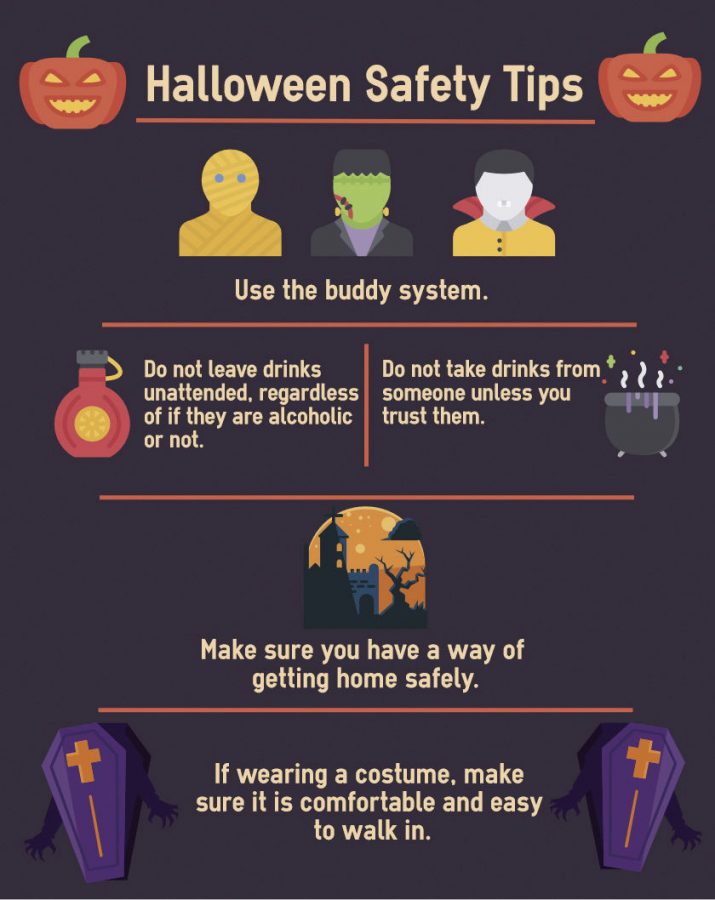Safety and preparation tips for Halloween
October 24, 2018
Halloween is the highlight of the spooky season, where individuals dress in costumes, spend time with friends and take a break from the midterm. However, this holiday does not come without potential safety risks.
Assault, alcohol poisoning and illegal substance ingestion are more likely to occur on college campuses during Halloween, according to the National Safety Council.
There are several precautions individuals can take to be safely prepared for Halloween.
“My No. 1 advice to students who go out on Halloween is to keep their cellphone charged,” said Shequanda Jenkins, a university police officer.
Jenkins said it is important for students to have a plan of action before they leave a location.
“Always know where you are going and who you are going with,” Jenkins said. “Students often are quick to jump in a vehicle and take off without really knowing where they are going and that could be a potential safety issue.”
University police are available to students 24 hours every day and can give assistance to students on Halloween. UNA police can travel off campus to areas on Court Street if a student calls for help from an off-campus location.
“I encourage students to get a POMCO, a wireless GPS device that links to UNA police’s dispatch,” Jenkins said. “This is similar to a call police button and allows us to track students by GPS until we make contact.”
Students can purchase a POMCO off the company website, getthepom.com, and pay a one-time fee that allows access for four years.
“Students should also designate code words to signal to their friends if they are in a dangerous situation and need help,” Jenkins said.
Other safety tips for individuals on Halloween include traveling in a group, obeying laws, rules, and regulations, and carrying emergency cash, according to the National Safety Council.
UNA Student Affairs released a safety statement for students encouraging them to use designated drivers if they plan to consume alcohol.
The University Medical Amnesty/Good Samaritan Policy allows students to call for help without fear of retribution of violating university expectations, the Code of Student Conduct or being referred to the Student Conduct Office, even if he or she is calling for someone else.
Jenkins added it is important for students to be active bystanders and talk to their friends about inappropriate behavior and intervene when it is safe to do so.
“It is also important for students to be respectful to different cultures and not discriminate with their costumes,” Jenkins said.
The National Safety Council says individuals need to be educated about controversial events and avoid costumes that could create a negative perspective.
Individuals should consider avoiding costumes representing any ethnic groups other than their own or groups associated with hate crimes.
“I think it is important for students to be aware of their surroundings,” said sophomore Maggie Stewart. “I think it is important for people to be cautious of meeting new people who are wearing costumes, especially outfits that hide their faces or change their voices.”












